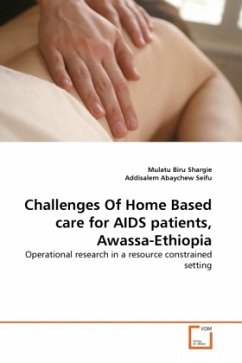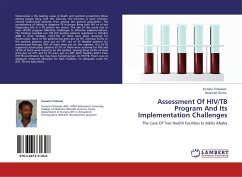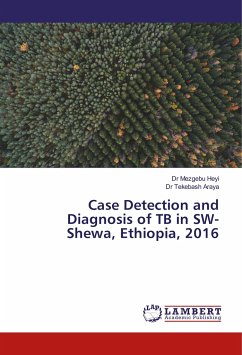
Trends, challenges and opportunities in TB control in rural Ethiopia
Epidemiological and operational studies in a resource-constrained setting
Versandkostenfrei!
Versandfertig in 6-10 Tagen
32,99 €
inkl. MwSt.

PAYBACK Punkte
16 °P sammeln!
One-third of the world s population is infected with TB, and the poor suffer most. More than 95% of TB cases and deaths are in developing countries. Worsening HIV pandemic and emerging drug- resistant TB pose a significant challenge to TB control.Ethiopia is one of the 22 TB high-burden countries in the world. This thesis evaluates the national TB control program in the context of DOTS, the globally recommended TB control strategy. The studies focus on epidemiological trends, operational challenges and opportunities to improve TB case finding and treatment outcomes. The studies focus on smear-...
One-third of the world s population is infected with TB, and the poor suffer most. More than 95% of TB cases and deaths are in developing countries. Worsening HIV pandemic and emerging drug- resistant TB pose a significant challenge to TB control.Ethiopia is one of the 22 TB high-burden countries in the world. This thesis evaluates the national TB control program in the context of DOTS, the globally recommended TB control strategy. The studies focus on epidemiological trends, operational challenges and opportunities to improve TB case finding and treatment outcomes. The studies focus on smear- positive TB, the most infectious form of TB, and the findings show that after five years with DOTS, case notification and treatment outcomes of TB patients improved significantly. To evaluate the impact of the TB program, we used a simple inexpensive method to estimate the prevalence of smear-positive TB. An intervention study on case finding through a village outreach program showed the intervention was effective in improving the speed of case detection. We also explored possible predictors of treatment non-completion.












